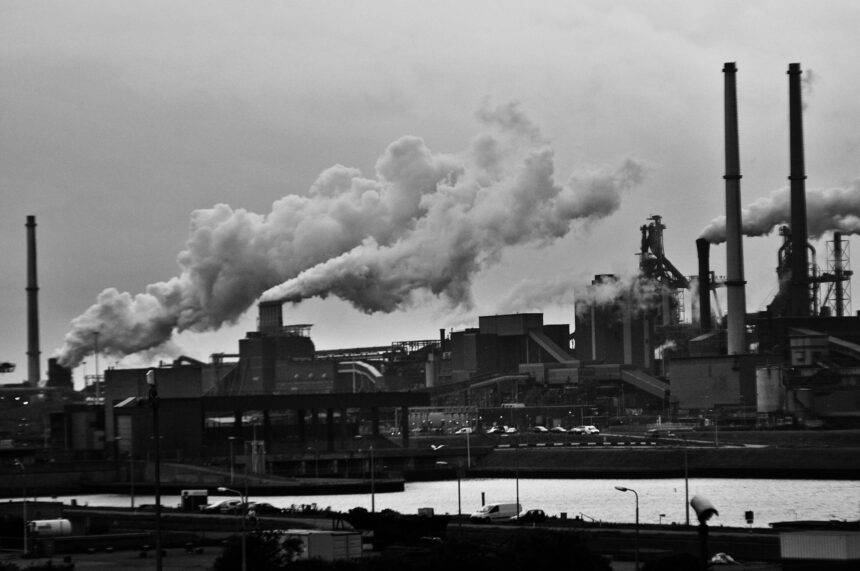Did you know that people are fighting over an air-quality permit in Telfair County, Georgia? Yep, local environmentalists and community members aren’t too happy about it. The dispute started when the state gave Telfair Forest Products the green light to double their pollution levels. More troubling is the fact this was done without adhering to federal standards.
What’s The Issue Here?
You might ask, what’s causing such a stir? Once upon a time on July 3, the State of Georgia okayed Telfair Forest Products to up its output of volatile organic compounds, or VOCs for short. The catch is that these VOCs—increasing from about 337 tons per year all the way to a whopping 586 tons—are bad news for both people and our planet. In some cases, they’re even considered cancer-causing agents! And worst of all – no need for important pollution controls or air impact studies required.
The Southern Environmental Law Center’s Senior Attorney Jennifer Whitfield was less than thrilled by this decision. In her own words: “EPD got this one wrong.” She went on to say: “Twice we detailed why this permit is illegal and endangers people. Yet regulators opted for ignorance.”
How This Impacts Our Planet and Communities
Telfair Forest Products hasn’t exactly had a reputable past. Having broken environmental rules multiple times in the past decade (racking up fines of over $50k), it has now turned into America’s leading wood pellet plant when it comes to emissions.
The biomass field—which includes chopping down trees and making wood pellets for electricity—is often touted as a clean energy source. But some opponents argue that burning wood pellets actually pumps out more greenhouse gases than coal does. Plus, it can lead to deforestation and a worsening climate change problem. Trouble is that many wood pellet factories are situated near low-income communities of color in the southeast US making environmental injustices all the more real.
Environmental Justice: At Risk
Particularly restless are those advocating for environmental justice who worry about higher emissions affecting Telfair County’s residents. Over 70% of Lumber City—a city inside the county—is Black and the area is counted amongst Georgia’s poorest. Residents already bear high pollution levels, with heightened emissions expected to take a toll on resident health.
Codi Norred from Georgia Interfaith Power and Light insisted on everyone’s basic human right to clean air. “It’s not okay to add into Georgians’ health burdens, especially those already hit hard by climate change and pollution,” says Norred. Both his organization and the Sierra Club—in association with SELC—have stepped up for Telfair County’s residents by challenging EPD’s decision in Georgia’s Office of Administrative Hearings.
A Bumpy Road Ahead for The Biomass Industry
In my experience with this industry over the last decade, biomass has grown significantly across these two decades; exporting tons of wood pellets as green energy resources to Europe and Asia is proof in itself! But recent times haven’t been too kind—in fact they’re facing increasing backlash from conservation groups who believe biomass doesn’t offer environmentally friendly energy solutions truthfully.
Economically too, things aren’t looking peachy. Prices have surged upwards out of favor for these guys (like Enviva—the world’s leading pellet producer—that just applied for bankruptcy protection). Though overseas companies have enjoyed subsidies for their renewable energies, the U. S. Treasury Department is still deciding whether to issue renewable energy tax credits for this issue.
The Road Ahead
The Telfair Forest Products’ permit dispute is all part of a bigger pursuit by environmental groups: making sure polluters are held accountable and vulnerable communities are kept safe from harm. Leading the race in Georgia for legal and policy know-how, it’s up to the Southern Environmental Law Center, or SELC, to guarantee safety from harmful emissions.
“This challenge makes sure all Georgians—Telfair residents included—are safe from corporate contamination and their allies at EPD,” G Webber of Sierra Club Georgia Chapter Director said. As this case progresses within Georgia’s Office of Administrative Hearings, environmental groups are determined to fight for strict regulations and enforcement to stop further environmental injustices and ensure the well-being of all Georgians.


Leave a Reply